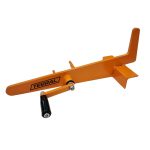Fleet management involves a lot of data collection and analysis, and the role of data analytics in fleet management is becoming increasingly important. With the help of data, fleet managers can make better decisions about their vehicles, drivers, and operations.
Here are some ways data analytics can benefit fleet management:
Predictive maintenance: Fleet managers can use data analytics to identify potential maintenance issues before they become major problems. By monitoring data on vehicle performance, fuel usage, and other metrics, managers can schedule maintenance to avoid costly breakdowns and keep vehicles on the road.
Route optimization: Data analytics can help fleet managers optimize routes to minimize driving time and reduce fuel costs. By analyzing traffic patterns, road conditions, and other factors, managers can choose the most efficient routes for their drivers.
Driver performance: Fleet managers can use data analytics to monitor driver performance and identify areas for improvement. By tracking metrics such as speed, fuel efficiency, and braking, managers can provide feedback and coaching to help drivers improve their skills and reduce risks on the road.
Cost analysis: Data analytics can help fleet managers analyze costs and identify opportunities for savings. By tracking fuel consumption, maintenance expenses, and other expenses, managers can make informed decisions about fleet operations and identify areas where they can cut costs.
Safety: Data analytics can help fleet managers improve safety by monitoring driver behavior and identifying risks. By analyzing data on accidents, near-misses, and other incidents, managers can identify trends and implement strategies to reduce risks and improve safety.
Overall, data analytics is becoming an essential tool for fleet managers looking to improve their operations and reduce costs. By leveraging the power of data, managers can make informed decisions and optimize their fleets for maximum efficiency and safety.



































































































